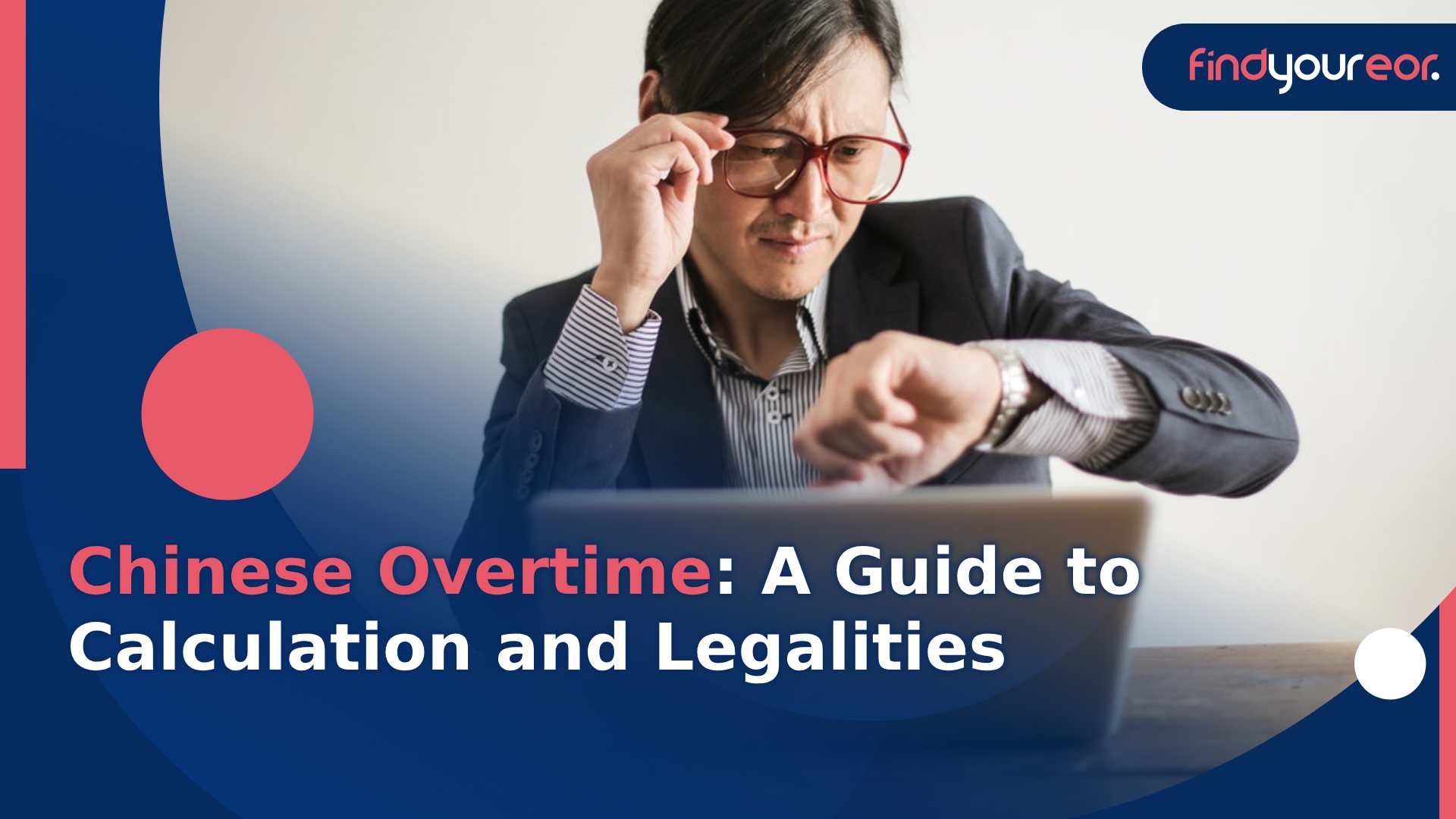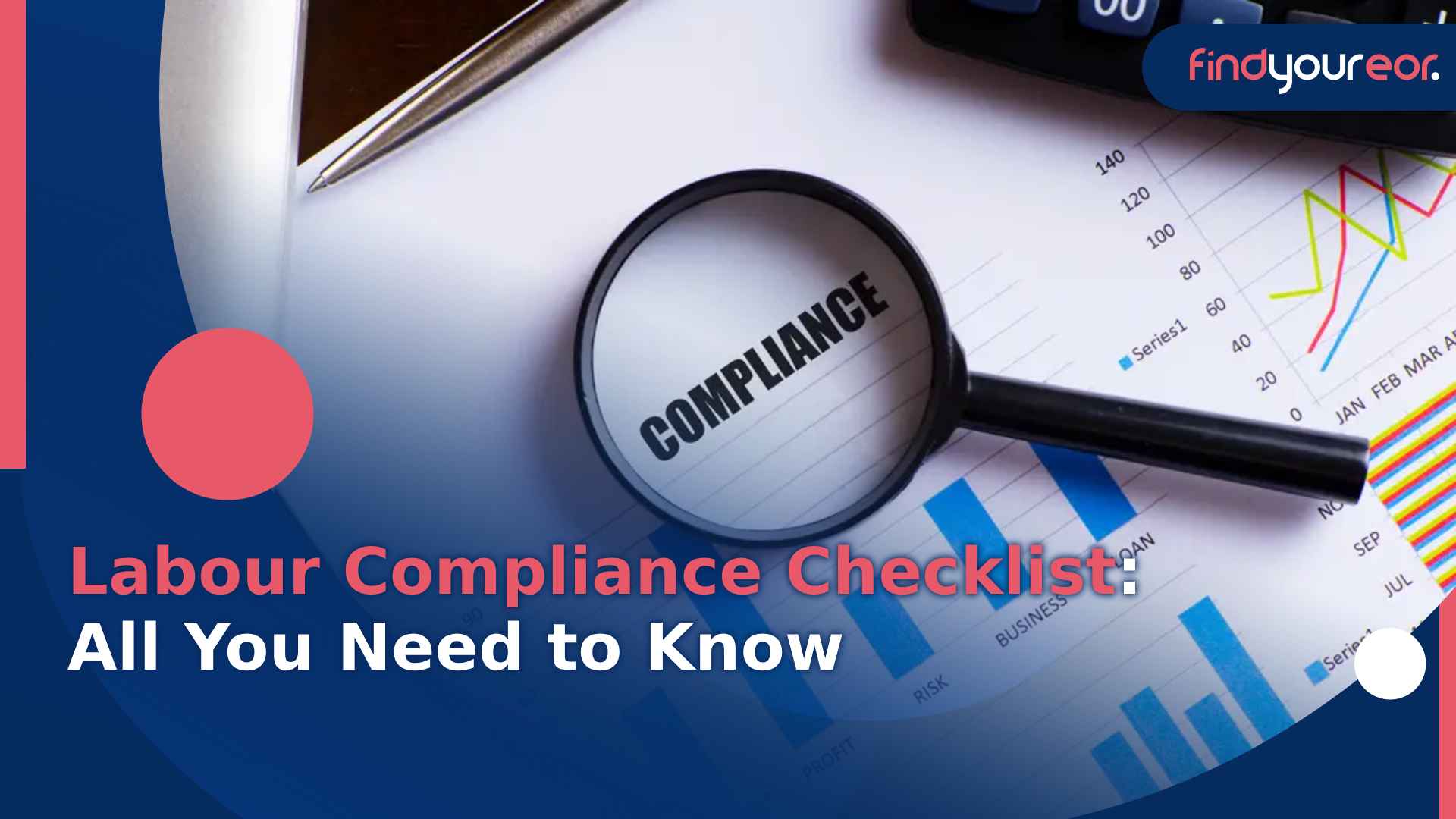Labour Compliance Checklist: All You Need to Know
Last update: January 12th 2024
In the difficult realm of employment regulations, a labour compliance checklist stands as a beacon, guiding businesses through the labyrinth of legal intricacies. This comprehensive tool ensures that organizations adhere to statutory norms, promoting ethical conduct in the workforce. However, navigating the dynamic landscape of labour laws demands a systematic approach.
In this article, we delve into the core aspects of the labour law compliance checklist. Then, we will shed light on its components and the broader landscape of statutory obligations. To effectively navigate the complexities of labour laws, employers must embrace a proactive approach. This involves not only understanding the checklist's contents but also appreciating the broader implications of non-compliance.
What is the Labour Compliance Checklist?
A labour compliance checklist serves as a pivotal tool for businesses navigating the intricacies of employment regulations. It acts as a comprehensive guide, outlining the legal requirements and standards that employers must adhere to in their operations.
Primarily, this meticulous checklist plays a crucial role in ensuring that businesses maintain a fair and lawful employment environment. Indeed, employers must follow the labour compliance checklist, not only mitigate legal risks but also foster an environment of transparency and fairness. By encompassing various aspects, from employee contracts to workplace safety measures, it provides a detailed roadmap for employers to uphold ethical practices.
Within the realm of employment protocols, the labour compliance checklist specifically addresses essential elements. These include but are not limited to, minimum wages, working hours, and employee benefits. By incorporating these facets, businesses strive to foster fair and equitable treatment for their workforce.
Notably, the labour law compliance checklist is a subset that emphasizes legal requirements mandated by statutory bodies. It directs businesses to adhere to specific laws and regulations concerning employment, ensuring a comprehensive approach to legal compliance.
In essence, the labour compliance checklist is not merely a document but a strategic framework. It cultivates an environment where businesses can thrive ethically, minimize legal risks, and promote sustainable growth.
What Does a Labour Compliance Checklist Include?
A labour compliance checklist is an indispensable tool that encompasses a myriad of elements essential for businesses to operate ethically and legally. This comprehensive document serves as a blueprint for employers to ensure adherence to various legal and regulatory requirements.
Firstly, the labour compliance checklist dives into the intricacies of employee contracts, addressing crucial aspects such as terms of employment and benefits. This sets the foundation for a fair and transparent employer-employee relationship.
In addition to contractual obligations, the checklist delves into workplace safety measures, promoting a secure environment for employees. It meticulously outlines protocols for emergency procedures, ensuring the well-being of everyone within the organization.
Furthermore, the checklist covers aspects such as working hours and overtime policies, safeguarding employees against exploitation. This detailed attention to working conditions contributes to a positive work culture.
Notably, businesses operating in specific regions, like Tamil Nadu, must adhere to state-specific regulations. The Tamil Nadu labour law compliance checklist tailors the broader checklist to address nuances specific to the state, ensuring thorough compliance.
In essence, a robust compliance checklist is a dynamic document, adapting to evolving legal landscapes. It goes beyond a mere checklist, becoming a strategic tool for businesses to uphold ethical standards and legal requirements.
What is a Statutory Compliance Checklist?
A statutory compliance checklist is a specialized component within the broader labour compliance checklist, focusing on specific legal requirements mandated by statutory bodies. This targeted approach ensures meticulous adherence to regulations governing employment.
To comprehend the significance of a statutory compliance checklist, one must first recognize its role in mitigating legal risks. By systematically addressing statutory obligations, businesses safeguard themselves against potential legal ramifications.
Within the realm of labour laws statutory compliance checklist, employers encounter a detailed roadmap that spans various regulatory aspects. This encompasses everything from tax compliance to workplace safety standards, providing a holistic approach to legal adherence.
Moreover, the statutory compliance checklist acts as a dynamic tool, evolving alongside changes in legislation. This adaptability ensures that businesses remain consistently compliant with the latest statutory requirements.
Businesses utilizing a labour compliance checklist gain a strategic advantage by incorporating statutory compliance. This approach not only fosters legal adherence but also contributes to the creation of a resilient framework for ethical and sustainable business practices.
In conclusion, understanding the nuance of a statutory compliance checklist within the broader labour compliance checklist is paramount. It transforms the checklist from a generic guide to a tailored tool, ensuring businesses navigate the legal landscape with precision.
Why is the Labour Law Important?
Understanding the significance of labour law is pivotal for businesses, and the labour compliance checklist is instrumental in this regard. Labour laws establish the framework for fair employment practices, safeguarding the rights and well-being of both employers and employees.
Firstly, the labour compliance checklist serves as a guiding beacon, ensuring businesses align with legal requirements. It acts as a proactive measure, preemptively addressing potential issues and reducing the risk of legal entanglements.
Moreover, labour laws play a crucial role in fostering a harmonious workplace. By delineating the rights and responsibilities of both employers and employees, these laws create a foundation for transparent and equitable employment relationships.
In the context of regional variations, such as in Karnataka, a Karnataka labour laws compliance checklist tailors the broader checklist to address specific nuances. This regional specificity ensures businesses operate seamlessly within the legal parameters of the state.
Furthermore, the labour compliance checklist becomes a tool for ethical business conduct. By adhering to these laws, businesses not only comply with legal standards but also contribute to a positive societal impact, promoting social responsibility.
Finally, the importance of labour law is underscored by its role in fostering ethical practices, transparent relationships, and legal adherence, all facilitated by the indispensable labour compliance checklist.
Frequently Asked Questions
What is a Compliance Checklist?
A compliance checklist is a comprehensive tool designed to ensure businesses adhere to specific regulations and standards. It serves as a structured guide, encompassing a variety of legal and ethical considerations within the operational landscape.
To begin with, the primary purpose of a labour compliance checklist is to streamline the complexities associated with employment regulations. It serves as a dynamic document, continuously updated to reflect any changes in legal requirements.
One key aspect covered by a factory compliance checklist is ensuring adherence to safety protocols. This includes measures to guarantee a secure working environment, minimizing potential hazards and promoting employee well-being.
Furthermore, a labour compliance checklist acts as a proactive measure, preventing legal disputes and fostering a harmonious workplace. It outlines obligations related to employee contracts, wages, working hours, and more, contributing to fair employment practices.
So, a compliance checklist becomes an indispensable tool for businesses navigating the intricate web of legalities. It not only safeguards against potential legal consequences but also reinforces an ethical and responsible corporate culture.
In summary, the labour compliance checklist is a versatile instrument that goes beyond mere regulatory adherence. It becomes a strategic asset, promoting a culture of compliance, safeguarding businesses, and ensuring a fair and conducive working environment.
What is the Statutory Compliance Requirement?
Understanding the statutory compliance requirement is pivotal for businesses aiming to navigate the intricate legal landscape effectively. In essence, it refers to the obligatory adherence to laws and regulations imposed by statutory bodies, encompassing various facets of business operations.
To delve into this further, a comprehensive labour compliance checklist becomes a fundamental resource for businesses. It systematically captures and organizes the myriad statutory requirements, providing a structured approach to legal compliance.
An integral part of this process is the incorporation of an HR statutory compliance checklist. This specialized tool focuses on the specific human resources aspects within statutory requirements. It ensures that HR practices align seamlessly with the broader legal framework.
Specifically, the labour compliance checklist serves as a guide not only for adhering to statutory requirements but also for fostering a workplace culture that values compliance.
Moreover, the statutory compliance requirement extends beyond a mere checklist. It necessitates a proactive approach wherein businesses stay abreast of legislative changes, updating their practices to align with evolving statutory expectations.
In essence, comprehending the nuances of the statutory compliance requirement is not just a legal obligation but a strategic imperative. A well-utilized labour compliance checklist becomes the cornerstone of a resilient business, ensuring legal conformity and fostering a culture of compliance.
What is Labour Compliance in India?
Labour compliance in India refers to adhering to the intricate web of employment regulations established by various authorities.
Understanding the nuances of Indian employment laws is crucial. A comprehensive labour compliance checklist serves as a beacon for businesses, guiding them through the labyrinth of statutory requirements.
In India, each state may have specific regulations, exemplified by the Tamil Nadu labour law compliance checklist and the Karnataka labour laws compliance checklist. These state-specific checklists ensure businesses align with regional statutes.
Navigating the diverse legal landscape involves considerations such as minimum wages, working hours, and occupational health and safety. Businesses must meticulously address these aspects to foster a legally sound and ethical work environment. Failure to comply with these regulations can lead to legal repercussions and hinder business sustainability.
Indian labour laws are dynamic, with periodic amendments and updates. Staying abreast of these changes is paramount for businesses. Regular audits using a labour compliance checklist help identify gaps and ensure continuous alignment with the law.
Certainly, labour compliance in India demands a proactive approach, with businesses leveraging comprehensive checklists to navigate the intricate regulatory framework successfully. This not only mitigates legal risks but also fosters a robust and ethical work environment.
How Do I Make a Compliance Checklist?
Creating a labour compliance checklist is a meticulous process that demands attention to legal intricacies and organizational specifics.
1. Understand your business operations: Firstly, identify the nature of your business and the industry you operate in. Recognize the specific labour laws that govern your industry and geographic location.
2. List all relevant regulations: Next, research and compile a comprehensive list of federal, state, and local labour regulations. Categorize them to ensure a systematic approach to your compliance efforts.
3. Prioritize the checklist items: Assess the criticality of each compliance requirement based on potential legal implications. Prioritize items based on their impact on your business operations and workforce.
4. Document your compliance procedures: Clearly outline the steps your organization will take to ensure compliance with each regulation. Additionally, regularly update this documentation to reflect any changes in laws or internal processes.
5. Communication and training: Communicate the checklist to relevant stakeholders, ensuring everyone understands their role in maintaining compliance. Provide training programs to employees to keep them informed about the regulations governing their work.
6. Audit and update: Conduct regular audits to evaluate the effectiveness of your compliance measures. Update the factory compliance checklist promptly to address any changes in regulations or business practices.
Conclusion
In conclusion, embracing a robust labour compliance checklist is indispensable for navigating the intricacies of employment regulations effectively. Transitioning into the significance of this tool, it is evident that it acts as a safeguard, providing a structured framework for businesses to uphold legal standards.
Moving forward, the comprehensive nature of this checklist, encapsulating facets from contracts to workplace safety, underscores its pivotal role. Notably, it fosters fairness and equity in the treatment of employees, nurturing a conducive work environment.
Delving deeper into the specific subset, the statutory compliance checklist emerges as a key player in ensuring adherence to legal mandates. It zeroes in on the nuances of statutory obligations, fortifying businesses against legal pitfalls.
Examining the broader landscape of labour laws, their intrinsic importance becomes evident in establishing a foundation for fair employment practices. Compliance with these laws becomes a linchpin for both employers and employees, contributing to a harmonious and ethically sound workplace.
Would you like to know more about the labour compliance checklist? Then, visit our insights section.



















